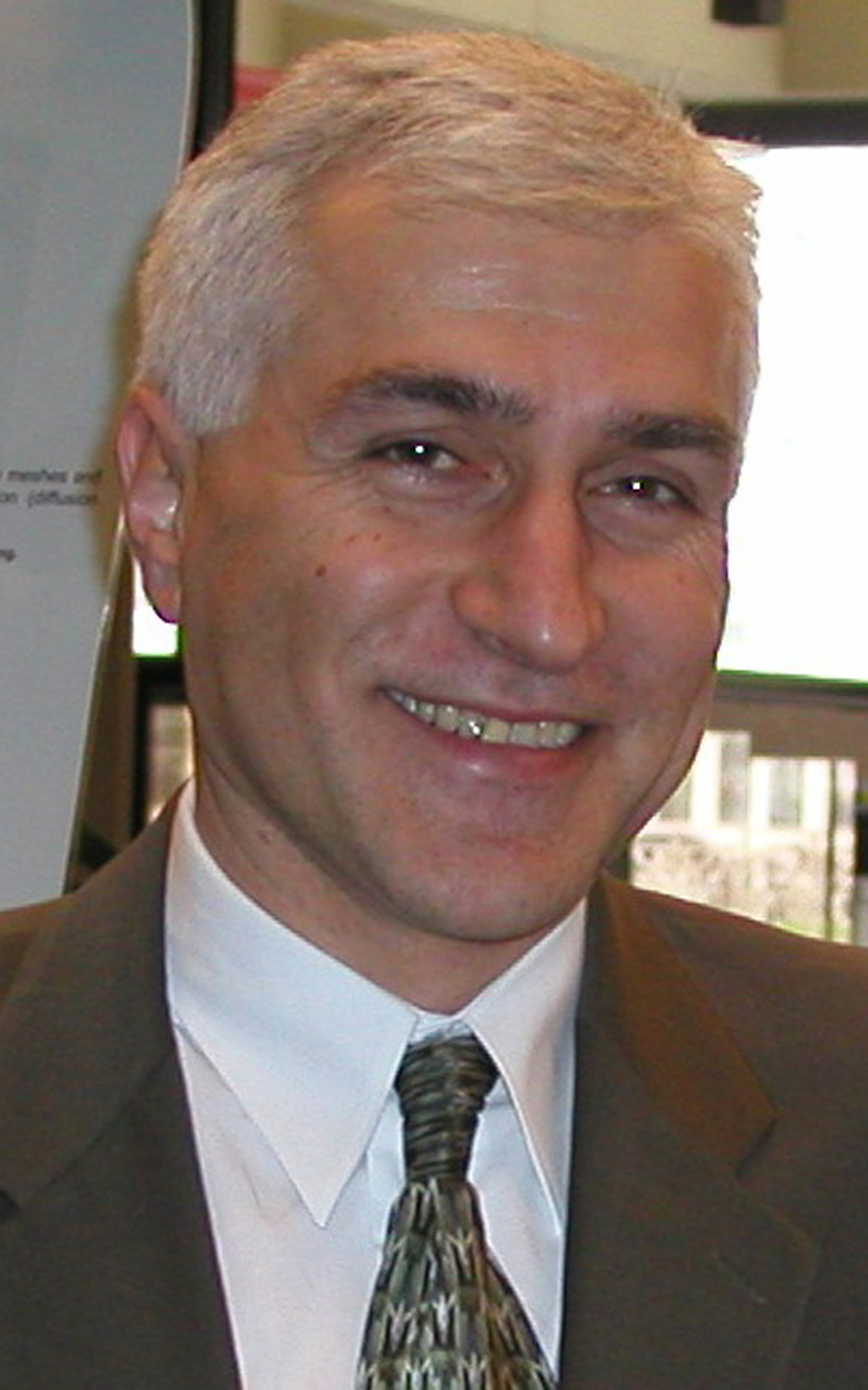Virginia Tech's nuclear engineering program recruits internationally acclaimed educator

The nuclear engineering program at Virginia Tech, reestablished in 2007 due to the nation’s critical demand for energy, has attracted Alireza Haghighat, an internationally known educator, to join its faculty.
Haghighat is a past chair of both the Nuclear Engineering Department Heads Organization and the International Advisory Council for the Nuclear and Quantum Engineering Department at the Korean Advanced Institute of Science and Technology.
Haghighat moved to the Virginia Tech campus in January of 2011, leaving his post as the Florida Power and Light Endowed Term Professor at the University of Florida. At the Florida campus, he started as the chair of the nuclear and radiological engineering department in 2001, and spent eight years in this position.
Haghighat, a Fellow of the American Nuclear Society, currently serves as the chair of the board of the Southeast Universities Nuclear Reactors Institute for Science and Education.
Haghighat is recognized internationally for his research in particle transport methods and their applications in the simulation of nuclear systems, parallel computing for nuclear applications, Monte Carlo methods, reactor physics, perturbation techniques, design of nondestructive interrogation systems for homeland security applications, simulation of nuclear reactors, radiation systems, and medical devices. Also, he has been involved in design and licensing of digital control and protection systems for nuclear reactors.
Sponsors for his research include a variety of federal and state agencies and private industry, including AREVA, Department of Energy, General Public Utilities Nuclear, Harris Semiconductors, IBM, Idaho National Laboratory, National Institutes of Health, National Science Foundation, Oak Ridge National Laboratory, Pennsylvania Power & Light, Philadelphia Electric Company, Progress Energy Florida, Sandia National Lab, State of Florida, and Westinghouse.
He has worked with and/or provided consulting for different international organizations, notably: Belgian Nuclear Research Centre; French Atomic Energy Commission; Electricite de France; Organization for Economic Co-operation and Development-Nuclear Energy Agency Data Bank of France; AREVA Gmbh of Germany, a subsidiary of AREVA NP; Siemens of Germany; Korea Power Engineering Company; Korean Advanced Institute of Science and Technology; Mitsubishi Heavy Industries; Mitsubishi Research Institute; Nuclear Power Engineering Corporation; Japan), Tokyo Electric Power Corporation of Japan; Osaka University of Japan; Moscow Engineering Physics Institute of Russia; National Tsing Hua University of Taiwan; and the Institute for Nuclear Energy Research of Taiwan. In the U.S., he has provided consulting for: the Department of Energy; Department of Homeland Security; Nucsafe Inc.; Nuclear Regulatory Commission; Global Atomic Inc.; and Babcock and Wilcox Owner’s Group. He also has served as an International Atomic Energy Agency expert.
Haghighat has published over 210 papers in refereed journals, conference proceedings and transactions. He has received several best paper awards, and has given numerous invited lectures, short courses, and plenary talks at national and international meetings and organizations. During his time as department head at the University of Florida, he grew the reputation and enrollment of Florida’s nuclear program. It became a top 10 nuclear graduate program within eight years of his arrival, and there was more than a three-fold increase in the number of students studying in the program.
“We are extremely fortunate to attract Dr. Haghighat to our campus. I first met him when we were both on the faculty at Penn State in 1977. He was one of the most productive faculty members in the college of engineering,” said Richard C. Benson, dean of Virginia Tech’s College of Engineering.
Ken Ball, head of Virginia Tech’s mechanical engineering department, who has expertise in special nuclear materials and engineering, also spoke of Haghighat’s many accomplishments. He said, “With a man of his talents joining our nuclear program, our long term vision to create an interdisciplinary program in nuclear science and engineering across three colleges will happen much faster.”
Virginia Tech is a founding member of the Southeast Universities Nuclear Reactors Institute for Science and Education (SUNRISE), of which Ball is a member of the board of directors. SUNRISE is dedicated to enhancing the quality of nuclear education and research and other services in the region for the purpose of supporting the development of the next-generation nuclear workforce, nuclear technology, and advanced nuclear research.
Virginia Tech’s nuclear coursework is also available to off-campus students. Since Virginia’s Commonwealth Graduate Engineering Program (CGEP) approved the nuclear certificate from Virginia Tech, its network is hosting the graduate classes and will use the distance education classrooms of Central Virginia Community College in Lynchburg, as well as the Richmond Center and the Hamptons Roads Center.
Courses in this program can also be used as resources to fill the requirements of the master’s of science and the Ph.D. programs in mechanical engineering. Earning a master’s degree in mechanical engineering with a nuclear certificate requires satisfactorily completing a 30-credit hour program.
Mechanical engineering faculty members Eugene Brown and Mark Pierson are in charge of the initial planning of this new program.
For additional information about this new program, e-mail Brown, or Pierson.



